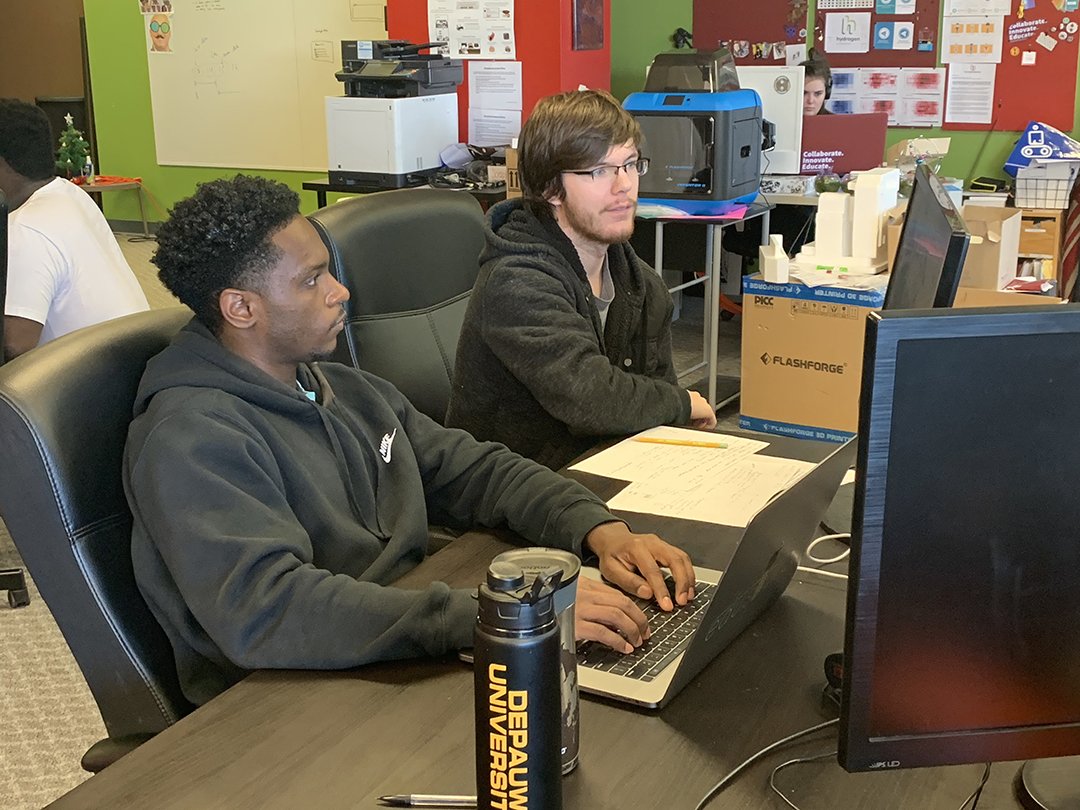
Molly Ferguson is an Associate Professor of English at Ball State University who is visiting EduSource this summer as a part of Ball State’s Faculty Externship Program.
I had the opportunity to visit EduSource in Indianapolis over several days in July, where I observed how their apprenticeship program works and how they get the job done. Since I visited during the Covid-19 pandemic, everyone was masked up and adjusting to recent staffing changes and teammates working from home. I was unsure if as a Ball State University literature professor I would feel completely lost—I know nothing, and I mean nothing, about coding or how to create software—but luckily the staff at EduSource is terrific at breaking things down into concepts I do understand.
One of the things that stuck out most to me during their daily morning meetings is the importance of bringing everyone along with the company’s goals and vision. I was surprised to learn that even college student apprentices who had been with them for three weeks were informed about how many points (a unit of measurement for labor the clients buy) tasks were redeemed for, and how many points employees needed to complete to keep things moving. It is rare for leaders to be so transparent with interns or new employees about how much money things generate and why they need to work so hard to meet deadlines. This creates a buy-in for the employee beyond the expectation to do one’s job—deadlines are not random, because they know what’s at stake.
When an apprentice showed me a mobile app he had designed for electricians, I asked if he would have known how to do this a month ago and he said, “No way!”.
Learning about the apprenticeship program was invigorating from a teacher perspective! Students are recruited by EduSource as early as their freshman year in college, and they participate in an intense vetting process which includes being videoed solving a problem in teams. When they arrive at EduSource, they quickly hit the ground running! By the time I arrived the apprentices were 3-4 weeks in, and I could not tell an apprentice from a full time employee based on their command of the terminology, work ethic, or ability to think through their decisions. When an apprentice showed me a mobile app he had designed for electricians, I asked if he would have known how to do this a month ago and he said, “No way!”.
The thing I was most impressed with at EduSource is how they build in metacognition – thinking about your own process – to help meet their daily and weekly goals laid out on the Kanban board. Apprentices learn to identify “root causes” for why a project may not be proceeding as quickly as expected, and then categorize those causes into patterns. In one case, an apprentice demonstrated an amazing sense of humility in recognizing what he didn’t understand before, and how he knows what he knows now. I could actually see the self-reflection happening in real time!
The company culture at EduSource is refreshing—everyone is invested and working together to move their projects forward. With a casual atmosphere, you can see the younger apprentices learn professionalism without having to pretend to be “corporate.” With frequent team-building exercises like game nights, jokes over Slack, and Friday lunches, the apprentices connect with each other and share personal jokes. They get to ring a bell when they complete a story and celebrate each other’s successes.
My biggest takeaway from my time at EduSource is a greater awareness of what kind of thinking is rewarded in a small company. I’ve learned that if you trust young people with ownership and accountability for their projects and instill a growth mindset, they can step up and produce highly professional, creative work.

This is fantastic. The skills you talk about are developed through humanities, other curricula (tech-related or not), and co-curriculars, and we see them applied in a tech environment here. Applying skills developed in English to a technology company. Makes sense, and still is amazing. I love, “The thing I was most impressed with at EduSource is how they build in metacognition – thinking about your own process – to help meet their daily and weekly goals” That is applicable to any path a student might take. Students learn that in college, and apply it in industry….and vice versa. Nice work edusource and Professor Ferguson!
Thanks, Jim! Since we consider ourselves to be a training company, as well as one that writes custom software, making sure the students are learning is vital to us. It was great to see it through Dr. Ferguson’s eyes and have confirmation that we are are making a difference!